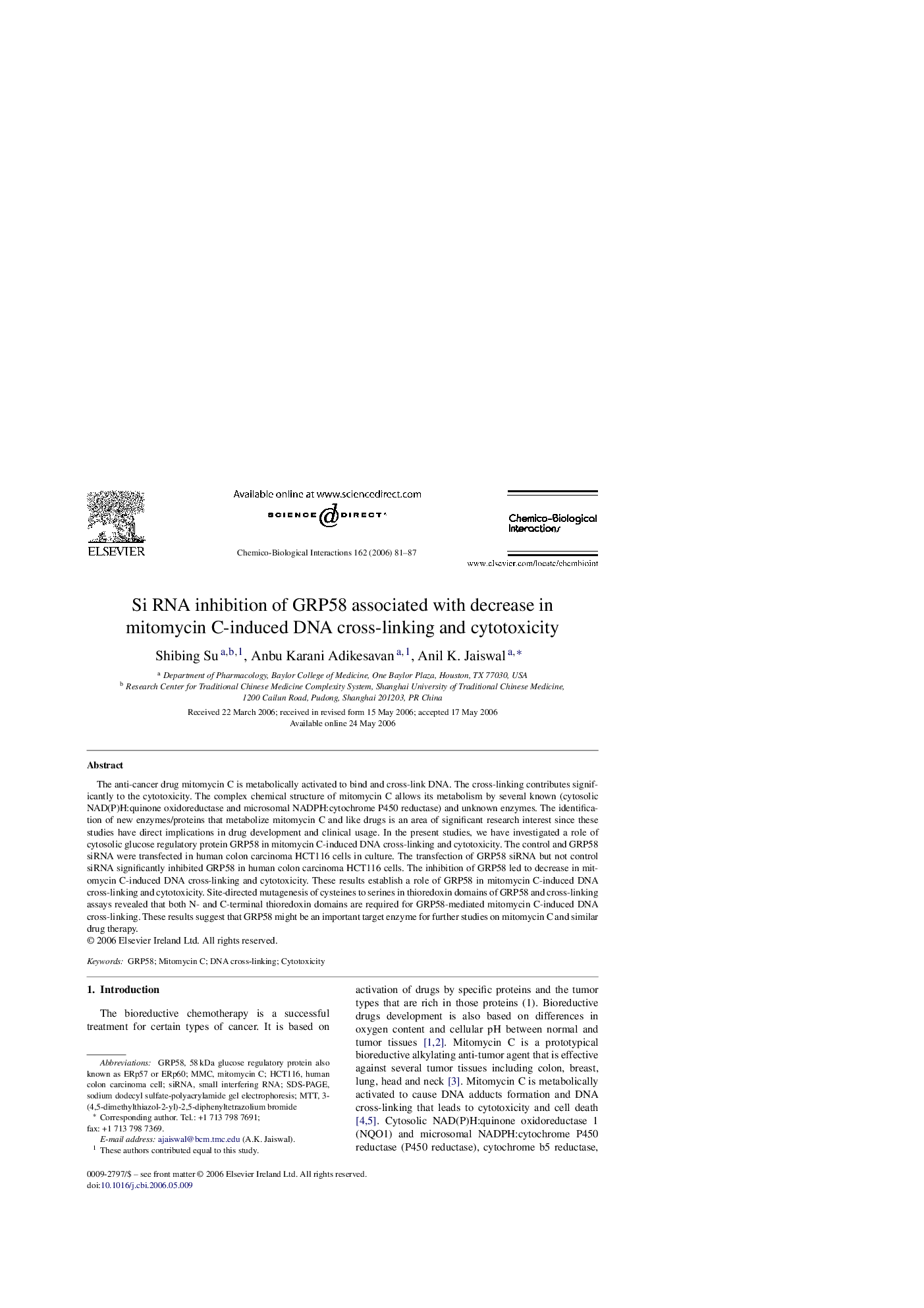| Article ID | Journal | Published Year | Pages | File Type |
|---|---|---|---|---|
| 2582684 | Chemico-Biological Interactions | 2006 | 7 Pages |
The anti-cancer drug mitomycin C is metabolically activated to bind and cross-link DNA. The cross-linking contributes significantly to the cytotoxicity. The complex chemical structure of mitomycin C allows its metabolism by several known (cytosolic NAD(P)H:quinone oxidoreductase and microsomal NADPH:cytochrome P450 reductase) and unknown enzymes. The identification of new enzymes/proteins that metabolize mitomycin C and like drugs is an area of significant research interest since these studies have direct implications in drug development and clinical usage. In the present studies, we have investigated a role of cytosolic glucose regulatory protein GRP58 in mitomycin C-induced DNA cross-linking and cytotoxicity. The control and GRP58 siRNA were transfected in human colon carcinoma HCT116 cells in culture. The transfection of GRP58 siRNA but not control siRNA significantly inhibited GRP58 in human colon carcinoma HCT116 cells. The inhibition of GRP58 led to decrease in mitomycin C-induced DNA cross-linking and cytotoxicity. These results establish a role of GRP58 in mitomycin C-induced DNA cross-linking and cytotoxicity. Site-directed mutagenesis of cysteines to serines in thioredoxin domains of GRP58 and cross-linking assays revealed that both N- and C-terminal thioredoxin domains are required for GRP58-mediated mitomycin C-induced DNA cross-linking. These results suggest that GRP58 might be an important target enzyme for further studies on mitomycin C and similar drug therapy.
